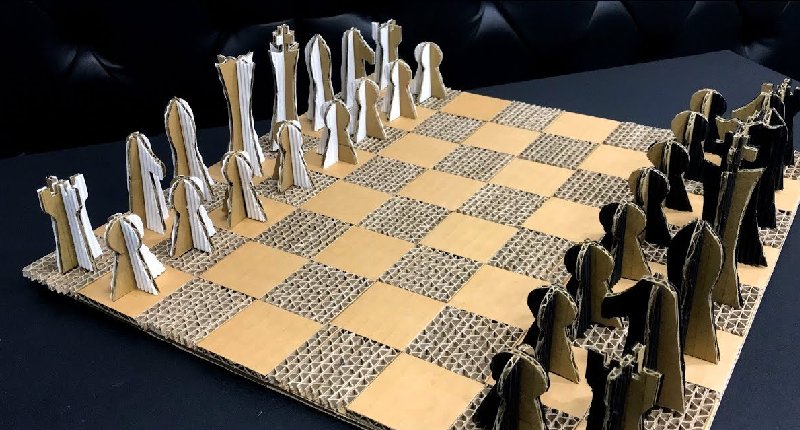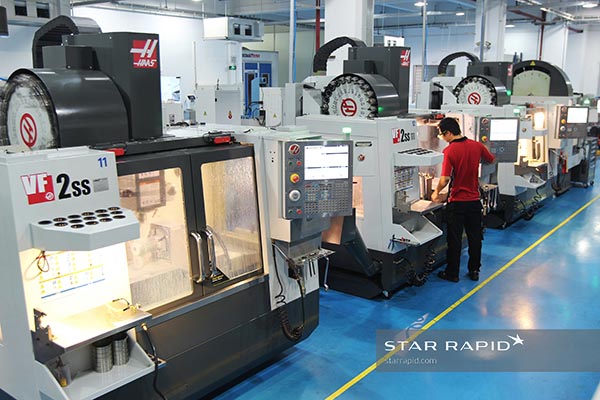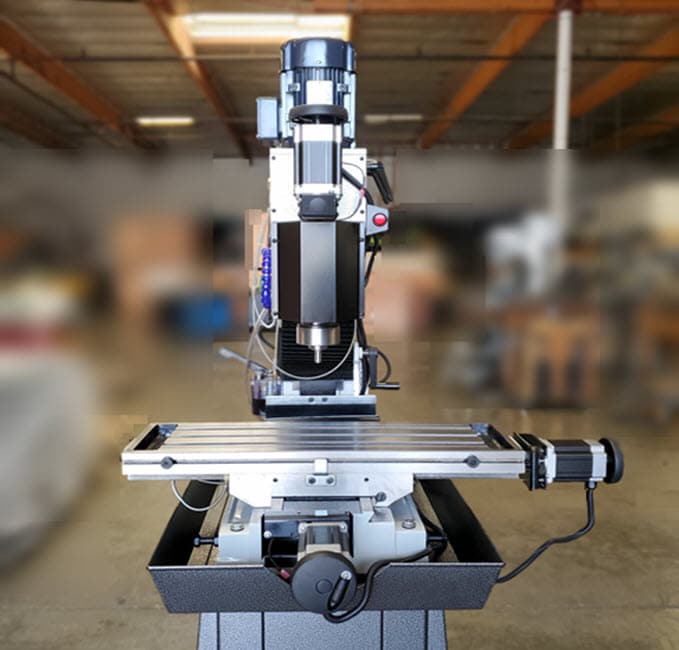Table of Contents
Are you new to CNC milling and wondering if you can do simple tasks on it? The answer is a resounding yes! CNC milling may seem overwhelming, but it can be straightforward and user-friendly. With the right tools and a bit of practice, you can create intricate designs or simple shapes on a CNC mill.
CNC milling is a versatile technology that allows you to cut, drill, and engrave a wide range of materials, from wood to metal. The best part is that you don’t need to be a professional machinist to use it. Even if you’re a beginner, you can start with simple projects and gradually move on to more complex ones. So, don’t be afraid to experiment and unleash your creativity with CNC milling!
Can I Do Simple Stuff on a CNC Mill?
CNC mills are known for their precision and accuracy, but many people hesitate to use them because they think they are too complicated. However, you don’t need to be an expert to use a CNC mill. Even if you’re just starting out, you can still do simple things on a CNC mill that will help you get familiar with the machine and build your skills. In this article, we’re going to explore some of the things you can do on a CNC mill, even if you’re a beginner.
1. Creating Basic Shapes
One of the simplest things you can do on a CNC mill is to create basic shapes. With a little bit of practice, you can create squares, circles, and even more complex shapes like stars and hexagons. To create these shapes, you’ll need to use a CAD (computer-aided design) program to create a digital design of the shape you want to make. Once you have your design, you can use the CNC mill to cut out the shape from a piece of material.
To create shapes on a CNC mill, you’ll need to be familiar with the software that controls the machine. You’ll also need to know how to set up the machine and load your design into the software. Once you’ve mastered these basic skills, you can move on to more complex projects.
2. Engraving and Etching
Another simple thing you can do on a CNC mill is to engrave or etch designs onto a piece of material. This is a great way to add a personal touch to your projects. To create an engraved or etched design, you’ll need to create a digital design in a CAD program and load it into the CNC mill software. The CNC mill will then carve the design into the material.
Engraving and etching can be used to create intricate designs and patterns on a variety of materials, including wood, plastic, and metal. You can even use the CNC mill to engrave text onto a piece of material, such as a name or a message.
3. Cutting Out Parts
If you’re working on a project that requires multiple identical parts, you can use a CNC mill to cut them out quickly and accurately. This is especially useful if you’re working with a material that is difficult to cut by hand, such as metal or thick plastic.
To cut out parts on a CNC mill, you’ll need to create a digital design of the part you want to make in a CAD program. Once you have your design, you can load it into the CNC mill software and set up the machine to cut out the parts. The CNC mill will then cut out the parts from a piece of material, ensuring that each one is identical.
4. Creating Jigs and Fixtures
Jigs and fixtures are tools that are used to hold materials in place while they are being worked on. They can help you work more efficiently and accurately, and they are easy to create on a CNC mill.
To create a jig or fixture on a CNC mill, you’ll need to create a digital design in a CAD program. Once you have your design, you can load it into the CNC mill software and set up the machine to cut out the jig or fixture from a piece of material. The CNC mill will then cut out the jig or fixture, which you can use to hold your workpiece in place while you work on it.
5. Making Molds
If you’re working with a material that can be molded, such as plastic or silicone, you can use a CNC mill to create molds that you can use to cast multiple copies of a part. This is a great way to create duplicates of a part quickly and accurately.
To create a mold on a CNC mill, you’ll need to create a digital design of the mold in a CAD program. Once you have your design, you can load it into the CNC mill software and set up the machine to cut out the mold from a piece of material. The CNC mill will then cut out the mold, which you can use to cast multiple copies of your part.
6. Cutting Threads
If you need to cut threads into a piece of material, you can use a CNC mill to do it quickly and accurately. This is especially useful if you’re working with a material that is difficult to cut by hand, such as metal.
To cut threads on a CNC mill, you’ll need to create a digital design of the threads in a CAD program. Once you have your design, you can load it into the CNC mill software and set up the machine to cut the threads into the material. The CNC mill will then cut the threads, ensuring that they are accurate and uniform.
7. Drilling Holes
Drilling holes is a basic function of a CNC mill, and it’s something that even beginners can do. To drill holes on a CNC mill, you’ll need to create a digital design of the holes in a CAD program. Once you have your design, you can load it into the CNC mill software and set up the machine to drill the holes into the material.
8. Chamfering Edges
Chamfering is the process of creating a beveled edge on a piece of material. This can be done to improve the appearance of the material or to make it easier to work with. Chamfering can be done on a CNC mill by creating a digital design of the chamfer in a CAD program and loading it into the CNC mill software. The CNC mill will then cut the chamfer into the material.
9. Creating Gears
Gears are an essential component of many mechanical devices, and they can be easily created on a CNC mill. To create gears on a CNC mill, you’ll need to create a digital design of the gear in a CAD program. Once you have your design, you can load it into the CNC mill software and set up the machine to cut the gear from a piece of material.
10. Benefits of Using a CNC Mill
Using a CNC mill has many benefits, including:
– Increased precision and accuracy
– Faster production times
– Consistent results
– Ability to work with a variety of materials
– Ability to create complex designs
Compared to traditional machining methods, using a CNC mill can save time and money, while also improving the quality of the final product.
In conclusion, even if you’re a beginner, there are many simple things you can do on a CNC mill. With a little bit of practice, you can create basic shapes, engrave and etch designs, cut out parts, create jigs and fixtures, make molds, cut threads, drill holes, chamfer edges, and even create gears. Using a CNC mill has many benefits, and it can be a valuable tool for anyone who wants to create high-quality, precise parts and components.
Frequently Asked Questions
Can I Do Simple Stuff on a CNC Mill?
Question 1: What is a CNC Mill?
A CNC (Computer Numerical Control) mill is a machine tool used to remove material from a workpiece using cutting tools. It is controlled by a computer program that dictates the movements of the machine, allowing for precise and accurate cuts.
With a CNC mill, you can easily create complex shapes and designs that would be difficult or impossible to make by hand. It is a versatile tool that can be used for a variety of applications, from prototyping to mass production.
Question 2: What kind of simple stuff can I do on a CNC mill?
While a CNC mill is capable of producing complex parts and designs, it is also well-suited for simple jobs. For example, you can use a CNC mill to create basic shapes, such as squares or circles, or to cut out simple parts from sheet metal or other materials.
Additionally, a CNC mill can be used for tasks such as drilling holes or cutting threads, which are common in many manufacturing processes. With the right tools and programming, you can use a CNC mill to perform a wide range of simple tasks.
Question 3: Do I need special training to use a CNC mill?
While operating a CNC mill does require some specialized knowledge and training, it is not difficult to learn. Most manufacturers provide training and support for their machines, and there are also many resources available online to help you get started.
Additionally, many community colleges and technical schools offer courses in CNC machining, which can provide you with the skills and knowledge you need to operate a CNC mill effectively.
Question 4: Can I use a CNC mill for hobby projects?
Yes, a CNC mill can be a great tool for hobbyists and DIY enthusiasts. With its versatility and accuracy, it can help you create a wide range of projects, from custom furniture to intricate metalwork.
Additionally, there are many affordable desktop CNC mills available on the market today, which are perfect for home use. These machines are smaller and less powerful than industrial-grade CNC mills, but they are still capable of producing high-quality results.
Question 5: How much does a CNC mill cost?
The cost of a CNC mill can vary widely depending on the size, complexity, and features of the machine. Industrial-grade CNC mills can cost hundreds of thousands of dollars, while smaller desktop models can be purchased for a few thousand dollars.
If you are considering purchasing a CNC mill for hobby or home use, there are many affordable options available. Just be sure to do your research and choose a machine that meets your needs and budget.
In conclusion, the answer to the question of whether you can do simple stuff on a CNC mill is a resounding yes. With the right tools, knowledge, and software, you can create simple designs and turn them into tangible products.
While CNC milling can seem intimidating at first, it is a versatile and powerful tool that can bring your ideas to life. From engraving to cutting, the possibilities are endless.
So whether you’re a beginner or an experienced user, don’t be afraid to explore the world of CNC milling. With practice and patience, you can create anything you set your mind to. So go ahead and give it a try – you might just surprise yourself with what you can do.
Request a quote today!
[contact-form-7 id="1578" title="Contact form"]
Please compress the file into a ZIP or RAR file before uploading. Alternatively, send through your RFQ by email.
enquires@unitymanufacture.com





